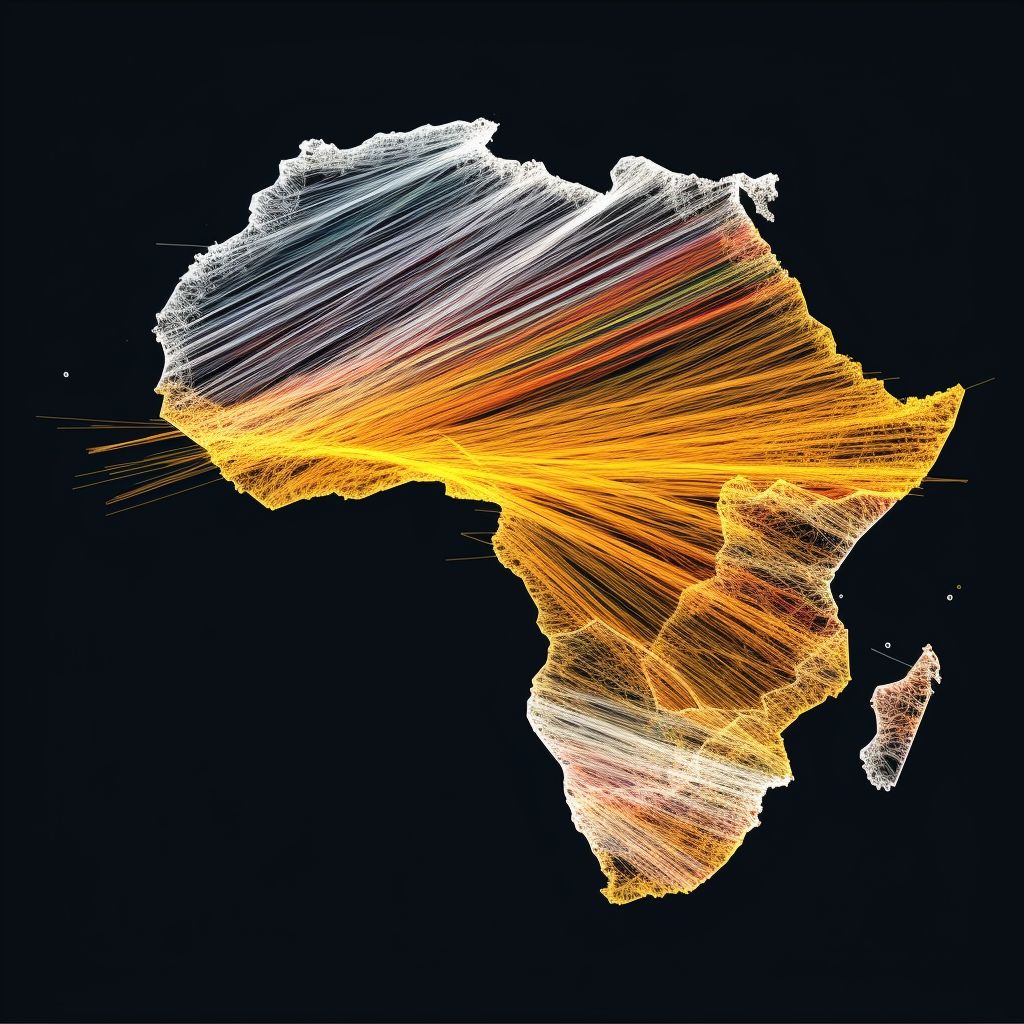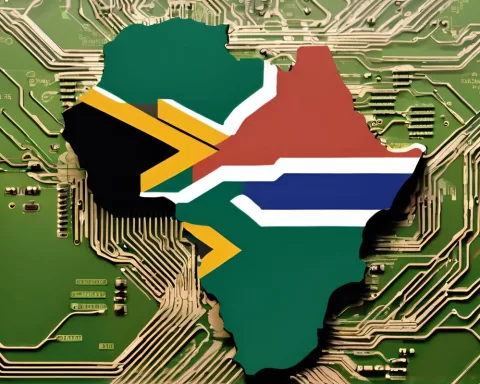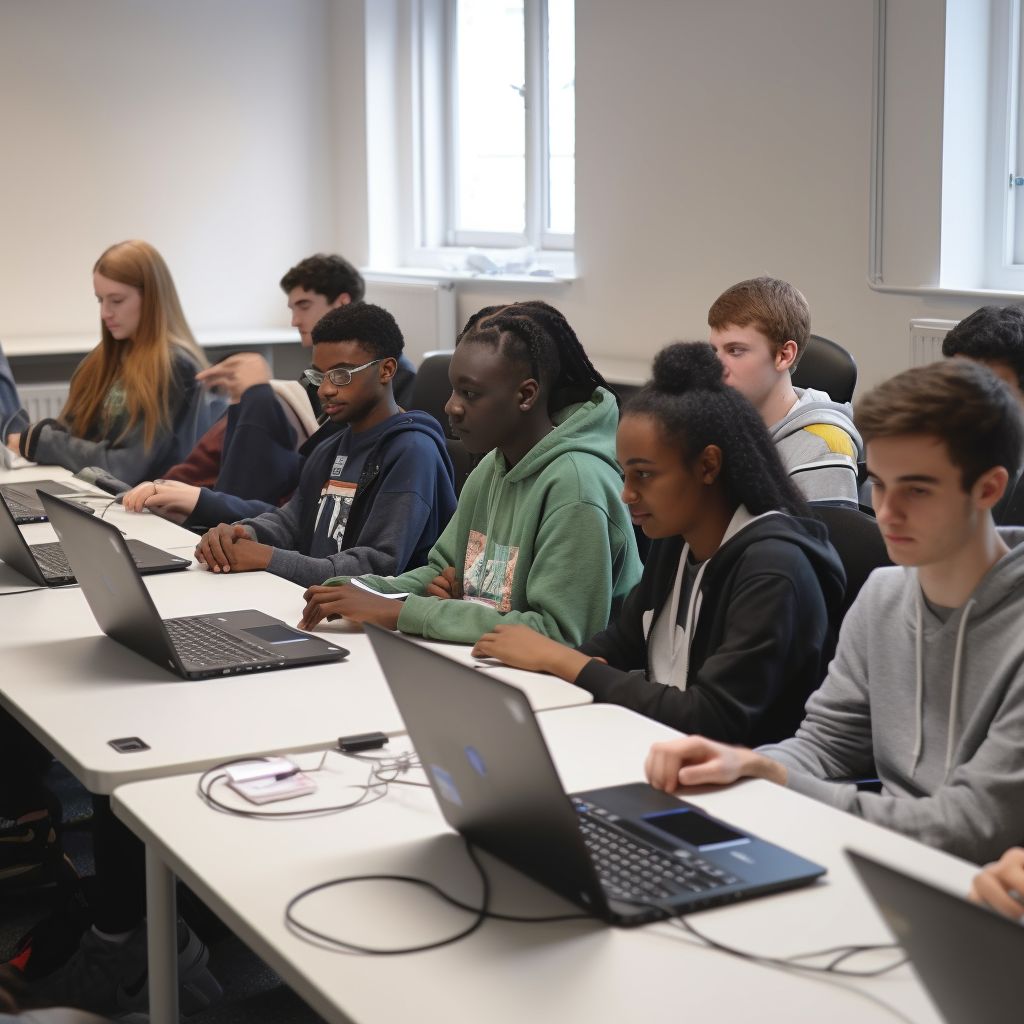Minister Mondli Gungubele, growing up in eNgcobo, the Eastern Cape, could not have imagined that one day villagers would be able to watch a live budget vote debate from the comfort of their homes. Thanks to technological advancements in communications and digital technologies, South Africans can now access information and stay connected, irrespective of their location. The Department of Communications and Digital Technologies (DCDT) is dedicated to promoting growth in the digital sector while ensuring universal access to reliable, affordable, and high-speed connectivity. This article explores the latest efforts by the South African government to accelerate universal connectivity and promote digital literacy towards building an inclusive digital economy.
Connecting South Africa
South Africa has a highly developed digital ecosystem, with over 300,000 kilometers of fiber distributed throughout the country. The government’s flagship program, SA Connect, aims to bridge the digital divide by providing Wi-Fi access to communities and ensuring universal access to the internet. In 2023, the government plans to deploy 9,900 Wi-Fi hotspots in 16 districts across the country, with a goal to achieve 80% connectivity by 2024. The ambitious project has been granted a funding of R1.3 billion.
Next Generation Spectrum
Spectrum is a fundamental resource in the digital economy as it enables wireless signals to travel through the transmission of radio frequencies. To support economic modernization, the Department has published the draft Next Generation Spectrum Policy for public comment in September 2022, seeking to allocate as much spectrum as possible. The final Spectrum policy will be issued by September 2023, with the Independent Communications Authority of South Africa (ICASA) responsible for licensing.
Digitalisation of the State
The State Information Technology Agency (SITA) is responsible for integrating core government services within the financial year to facilitate seamless exchange of citizen data across departments for effective and efficient government service delivery. SITA aims to ensure complete digitalization within the Medium-Term Expenditure Framework (MTEF).
The Post Office of Tomorrow
Despite some challenges, the South African Post Office (SAPO) remains fully operational and committed to delivering essential services. The Post Office of Tomorrow Strategy focuses on improving customer experience through innovative technology solutions, such as online portals and mobile applications, to simplify and streamline processes. With a budget allocation of R2.4 billion, SAPO will revise its strategic role and concentrate on becoming an integrated logistics and e-commerce service provider.
Towards a State-Owned Bank
The corporatization of the Postbank is in progress, with the South African Postbank SOC Limited Amendment Bill approved by the National Assembly in March 2023. Once signed into law, it will enable the registration of the Bank Controlling Company (BCC) for the Postbank, allowing it to become a fully licensed commercial bank owned by the state.
Repositioning Public Broadcaster
The newly appointed SABC Board is responsible for developing an optimal strategy and business model for the public broadcaster. The government aims to provide an enabling policy and regulatory framework that is agile and balanced. The guidelines will inform the SABC’s Corporate Plan for 2023/24-2025/26.
Accelerating Universal Connectivity and Promoting Digital Literacy for an Inclusive Digital Economy
The South African government’s commitment to bridging the digital divide and building an inclusive digital economy is evident in its allocation of a total budget of R3.5 billion for the DCDT for 2023/24, including R1.6 billion for transfers and subsidies for ICT Enterprise Development and SOE Oversight. The government will continue to invest in critical initiatives that accelerate universal connectivity and promote digital literacy for the benefit of all citizens, thereby fostering an inclusive digital economy. In summary, the efforts being made in South Africa to enhance connectivity, develop digital skills, and support the growth of the digital economy are significant and hold great promise for the country’s future.












